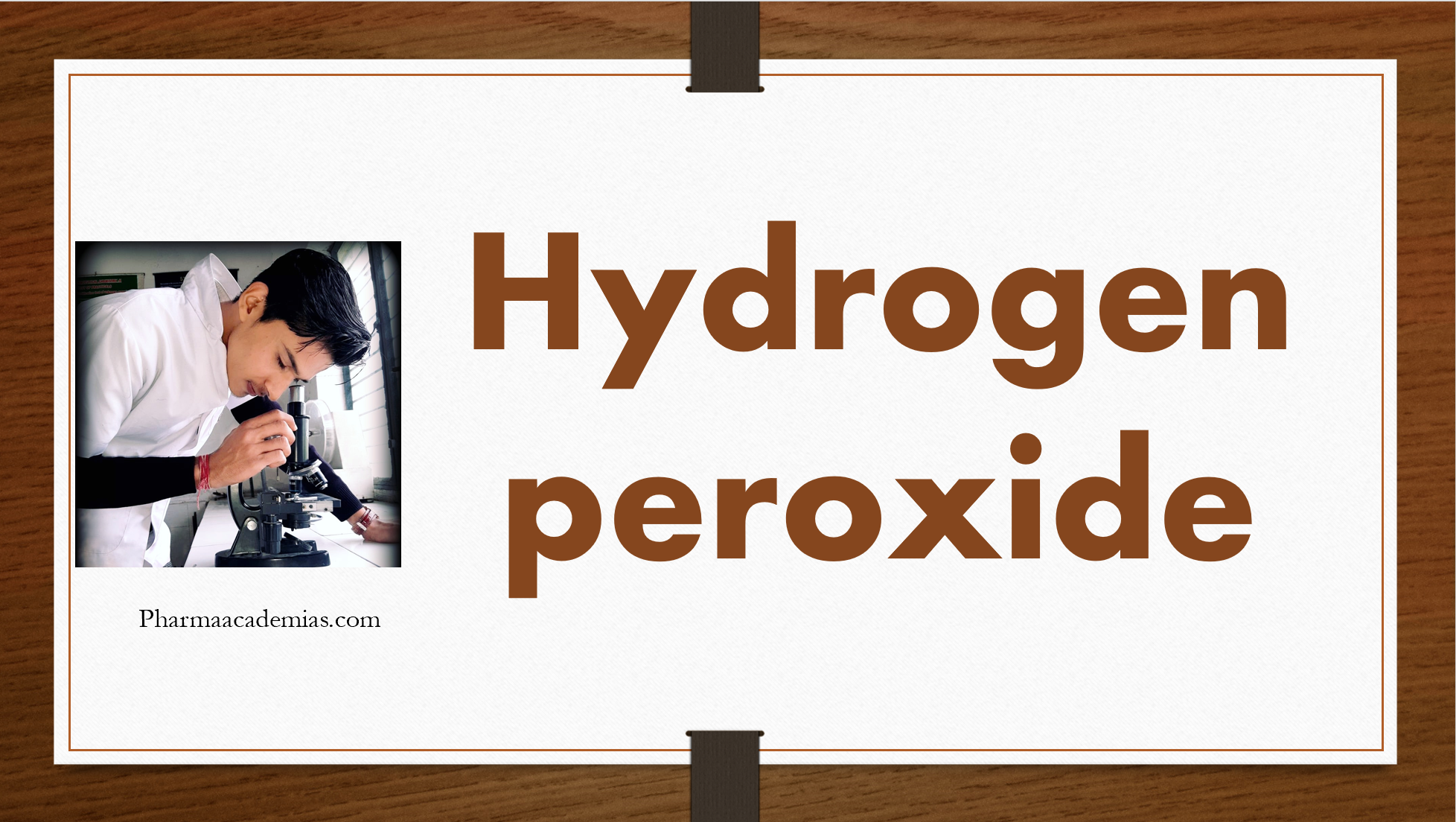Hydrogen peroxide is a chemical compound that has various applications, including as a topical agent for medical and healthcare purposes. Here’s some information about pharmaceutical formulations, market preparations, storage conditions, and uses of hydrogen peroxide as a topical agent:
Pharmaceutical Formulations
Manufacturers typically formulate hydrogen peroxide as a liquid solution. The most common concentration available for over-the-counter use is 3% hydrogen peroxide, but certain healthcare settings may also offer higher concentrations. Manufacturers may also stabilize the solution with small amounts of other compounds to extend its shelf life.
Market Preparations
Hydrogen peroxide is widely available in most drugstores and supermarkets. Manufacturers typically package it in brown or opaque containers to protect it from light because exposure to light can cause it to break down and become less effective.
Storage Conditions
Proper storage is crucial to maintain the stability and efficacy of hydrogen peroxide:
– Store hydrogen peroxide in a cool, dark place away from direct sunlight and heat.
– Keep the container tightly closed when not in use to prevent contamination and evaporation.
– Store hydrogen peroxide away from flammable materials and ignition sources, as it is a powerful oxidizer and can pose a fire risk in certain conditions.
– Follow any specific storage instructions the manufacturer provides, as formulations may vary between products.
Uses of Hydrogen Peroxide as Topical Agents
Hydrogen peroxide is used for various topical applications in healthcare and first aid:
1. Wound Cleaning: It can clean and disinfect minor cuts, scrapes, and wounds to help prevent infection. It foams upon contact with organic material, which can help remove debris and foreign particles.
2. Oral Care: Hydrogen peroxide can be diluted with water and used as a mouthwash to help kill bacteria and reduce the risk of gum infections, though this should be done with caution and under the guidance of a dentist.
3. Earwax Removal: A diluted hydrogen peroxide solution can soften and help remove impacted earwax.
4. Foot Care: It can be used to disinfect minor foot injuries, such as blisters or cuts, and can also help treat fungal infections like athlete’s foot.
5. Nail Disinfection: Hydrogen peroxide can disinfect nails and cuticles, particularly when dealing with ingrown toenails or nail infections.
6. Skin Acne Treatment: Some individuals use diluted hydrogen peroxide to spot-treat acne lesions, but this should be done with caution and should not be left on the skin for extended periods.
It’s important to use hydrogen peroxide with caution and under the guidance of a healthcare professional when necessary. While it can be effective for wound cleaning and disinfection, it should not be used on deep wounds, puncture wounds, or severe burns, as it can delay healing and cause tissue damage. Additionally, using hydrogen peroxide as a mouthwash or for other oral care should be done sparingly and with proper dilution, as it can irritate oral tissues when used at full strength. Always follow specific product instructions and consult a healthcare provider for concerns or needs.

